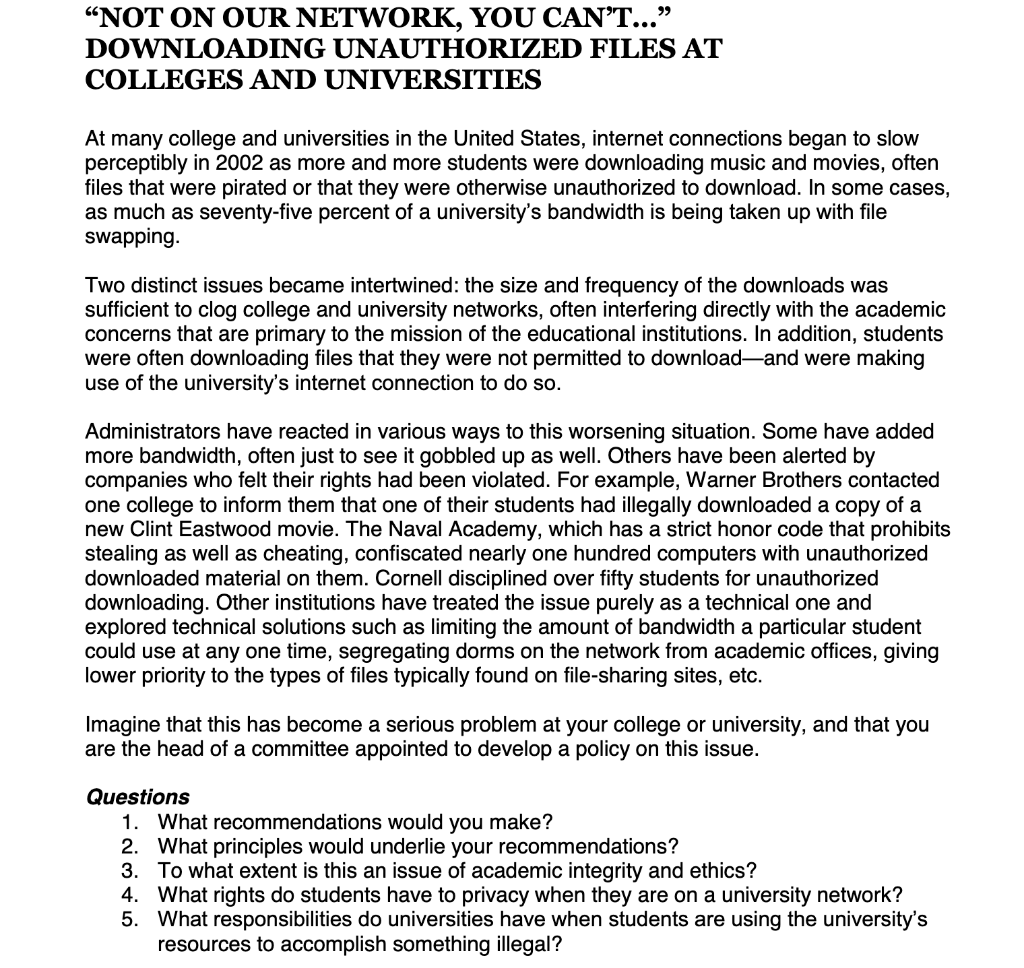
DOWNLOADING UNAUTHORIZED FILES AT COLLEGES AND UNIVERSITIES At many college and universities in the United States, internet connections began to slow perceptibly in 2002 as more and more students were downloading music and movies, often files that were pirated or that they were otherwise unauthorized to download. In some cases, as much as seventy-five percent of a university's bandwidth is being taken up with file swapping. Two distinct issues became intertwined: the size and frequency of the downloads was sufficient to clog college and university networks, often interfering directly with the academic concerns that are primary to the mission of the educational institutions. In addition, students were often downloading files that they were not permitted to download-and were making use of the university's internet connection to do so. Administrators have reacted in various ways to this worsening situation. Some have added more bandwidth, often just to see it gobbled up as well. Others have been alerted by companies who felt their rights had been violated. For example, Warner Brothers contacted one college to inform them that one of their students had illegally downloaded a copy of a new Clint Eastwood movie. The Naval Academy, which has a strict honor code that prohibits stealing as well as cheating, confiscated nearly one hundred computers with unauthorized downloaded material on them. Cornell disciplined over fifty students for unauthorized downloading. Other institutions have treated the issue purely as a technical one and explored technical solutions such as limiting the amount of bandwidth a particular student could use at any one time, segregating dorms on the network from academic offices, giving lower priority to the types of files typically found on file-sharing sites, etc. Imagine that this has become a serious problem at your college or university, and that you are the head of a committee appointed to develop a policy on this issue. Questions 1. What recommendations would you make? 2. What principles would underlie your recommendations? 3. To what extent is this an issue of academic integrity and ethics? 4. What rights do students have to privacy when they are on a university network? 5. What responsibilities do universities have when students are using the university's resources to accomplish something illegal







